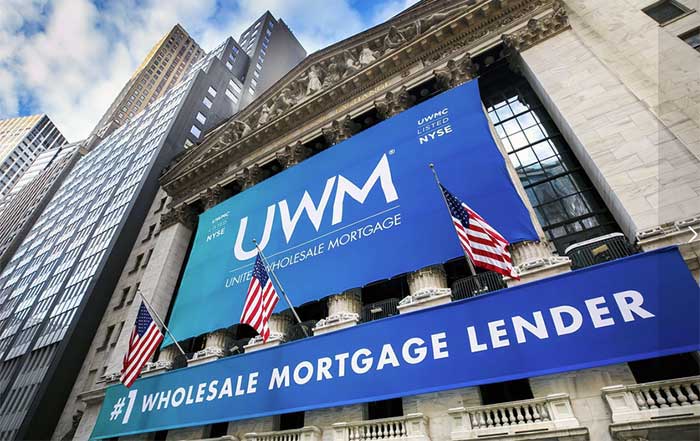The Most In-Demand Jobs in American Business in 2026: A Strategic Guide for Professionals and Employers
The American job market in 2026 stands at a pivotal intersection of resilience, technological disruption, and demographic change. For the audience of usa-update.com, which closely follows developments in the economy, business, employment, and regulation, understanding which roles are most in demand is no longer a matter of curiosity but a core component of career strategy, investment planning, and executive decision-making. The post-pandemic recovery phase has matured into a new economic cycle characterized by artificial intelligence integration, energy transition, and a reconfiguration of global supply chains, all of which are reshaping how organizations hire, compensate, and retain talent across the United States and other major regions including Europe, Asia, and North America more broadly.
This environment has elevated not only traditionally high-paying fields such as technology and finance, but also reinforced the centrality of healthcare, energy, and logistics as strategic pillars of national competitiveness. High-demand jobs are now defined by their structural importance to innovation, risk management, and long-term value creation, rather than simply by headline salaries. At the same time, the convergence of digital capabilities and human-centered skills-such as leadership, communication, and cross-cultural collaboration-has become a defining feature of the 2026 labor market, with employers increasingly seeking professionals who can bridge technical expertise and strategic judgment.
For readers navigating the shifting landscape of the American economy, resources such as economy insights and analysis and up-to-date business coverage on usa-update.com provide essential context. Yet beyond macroeconomic trends, it is the specific roles, sectors, and capabilities that determine where the most compelling opportunities lie through the end of this decade.
Technology Roles at the Core of Business Transformation
Technology remains the engine of structural change across nearly every sector of the economy. What distinguishes 2026 from earlier waves of digital transformation is the normalization of advanced AI tools, cloud-native architectures, and automation at scale, which has transformed software development, data analysis, and cybersecurity from support functions into strategic levers of competitive advantage.
Software Engineers, Cloud Architects, and AI Engineers
Software engineers continue to occupy one of the most critical positions in American business, but their work now increasingly revolves around building scalable, secure, and AI-enabled platforms rather than standalone applications. Organizations ranging from Google, Microsoft, and Apple to mid-market enterprises and high-growth startups are competing aggressively for engineers with deep experience in cloud-native development, distributed systems, and MLOps. Compensation remains robust, with mid-career engineers often earning six-figure base salaries and total compensation packages that can exceed $200,000 in high-cost hubs or at leading firms.
A related role that has grown rapidly since 2024 is that of the cloud architect, who designs and optimizes multi-cloud and hybrid environments, ensuring both cost efficiency and regulatory compliance. As enterprises shift more mission-critical workloads to platforms such as Amazon Web Services, Microsoft Azure, and Google Cloud Platform, cloud architects and DevOps specialists have become integral to digital resilience and business continuity planning. Those who pair technical depth with an understanding of governance and risk management are particularly valued. Readers can follow broader developments in the technology sector and digital innovation to better understand how these roles evolve.
AI engineers and machine learning specialists, meanwhile, are at the forefront of the generative AI revolution that accelerated between 2023 and 2025. Their responsibilities now extend beyond model training to encompass prompt engineering, model evaluation, responsible AI governance, and integration of AI capabilities into products and workflows. Organizations such as OpenAI, IBM, and leading research universities have helped formalize standards and best practices, but demand still significantly outstrips supply, particularly for professionals who can translate complex AI capabilities into commercially viable solutions.
For a deeper overview of how AI is being operationalized in enterprise environments, professionals may explore resources on artificial intelligence in business and industry, which outline both technical architectures and governance frameworks.
Data Scientists, Analytics Leaders, and Decision Intelligence
Data has consolidated its position as a strategic asset, and by 2026 most large organizations have moved beyond basic reporting into advanced analytics, predictive modeling, and decision intelligence. Data scientists and analytics leaders are responsible not merely for building models but for embedding data-driven decision-making into core business processes, from pricing and risk assessment to supply chain optimization and personalized customer experiences.
The most sought-after profiles are those that combine statistical and machine learning skills with a strong command of business context and communication. Chief data officers and heads of analytics, in particular, are expected to evangelize data literacy across the organization, align analytics initiatives with corporate strategy, and manage complex data governance obligations under U.S. and international regulations.
In parallel, the rise of AI-powered analytics tools has shifted some routine tasks away from human analysts, but it has also increased the importance of experts who can scrutinize outputs for bias, robustness, and alignment with organizational objectives. Those interested in how analytics intersects with macroeconomic and employment trends can look to labor market research and occupational data from the U.S. Bureau of Labor Statistics, which continues to be a foundational reference for workforce planning.
Cybersecurity Professionals and Zero-Trust Strategists
As cyberattacks have grown more sophisticated and geopolitically entangled, cybersecurity has become a board-level concern across industries. The U.S. public and private sectors have faced a steady stream of ransomware campaigns, supply chain compromises, and data breaches, prompting a rapid expansion in roles such as security operations center (SOC) analysts, incident responders, penetration testers, and zero-trust architects.
Organizations like Cisco Systems, Palo Alto Networks, and emerging cybersecurity startups are hiring aggressively, but demand is just as strong among hospitals, banks, utilities, and state and local governments that must comply with increasingly stringent regulatory frameworks. Security leaders are expected not only to implement technical controls, but also to develop incident response playbooks, coordinate with law enforcement, and educate non-technical executives on risk exposure.
For policy and regulatory context, the Cybersecurity and Infrastructure Security Agency provides evolving guidance on national cyber defense and critical infrastructure protection; readers can review federal perspectives on cybersecurity strategy and resilience to understand how public policy is shaping corporate security priorities.
Finance, Strategy, and Executive Leadership in a Volatile Economy
While technology often dominates headlines, finance and executive leadership roles remain central to capital allocation, risk management, and strategic direction in 2026. The combination of higher interest rates, inflation pressures, and geopolitical uncertainty has elevated the importance of professionals who can interpret complex financial environments and adjust corporate strategies accordingly.
Financial Analysts, Advisors, and Corporate Strategists
Financial analysts, portfolio managers, and corporate finance professionals continue to be in strong demand across banks, asset managers, private equity firms, and non-financial corporations. Their work increasingly involves analyzing not only traditional balance sheet metrics but also climate risk, supply chain exposure, and technological disruption. At leading institutions such as Goldman Sachs, J.P. Morgan Chase, and Morgan Stanley, analysts who can navigate both quantitative models and qualitative scenario planning are particularly valuable.
The wealth management segment has also evolved, with financial advisors expected to integrate digital tools, robo-advisory platforms, and personalized planning that addresses longevity risk, healthcare costs, and intergenerational wealth transfer. The ability to build trust through transparent communication and fiduciary responsibility has become a differentiator in a market where clients have instant access to information and comparison tools. Readers who follow finance trends and capital markets coverage on usa-update.com can gain additional context on how these roles are influenced by macroeconomic shifts and regulatory updates.
Corporate strategists and management consultants, particularly those with experience in digital transformation, M&A integration, and operating model redesign, remain in high demand. Global firms such as McKinsey & Company, Boston Consulting Group, and Bain & Company continue to recruit professionals who combine analytical rigor with strong client-facing skills, while in-house strategy teams within Fortune 500 companies have expanded to address ongoing restructuring and portfolio optimization needs.
Accountants, Auditors, and Compliance Leaders
Despite advances in automation and AI-driven bookkeeping tools, accountants and auditors retain a central place in the American business ecosystem. The complexity of U.S. tax codes, evolving international financial reporting standards, and heightened regulatory scrutiny following corporate failures and market volatility ensure that certified public accountants and audit professionals remain indispensable.
Major firms such as Deloitte, KPMG, Ernst & Young, and PwC continue to offer structured career paths, but there has also been growth in specialized boutiques focusing on ESG reporting, forensic accounting, and cross-border tax planning. The integration of environmental, social, and governance metrics into financial disclosures has amplified the need for professionals who can assure the quality and reliability of non-financial data, an area where traditional audit methodologies are being retooled.
Executives and investors who monitor regulatory developments and compliance issues can better anticipate how new reporting rules and oversight mechanisms will shape demand for finance and audit talent over the rest of the decade.
Healthcare and Biotech: Demographics, Innovation, and Resilience
The healthcare sector has emerged from the pandemic era with heightened visibility, increased investment, and sustained workforce pressures. In 2026, the American healthcare system continues to grapple with an aging population, chronic disease burdens, and regional disparities in access, all while integrating new technologies such as telehealth, remote monitoring, and AI-assisted diagnostics. These dynamics have reinforced the demand for a wide range of clinical and non-clinical roles.
Nurses, Advanced Practice Providers, and Allied Health Professionals
Registered nurses, nurse practitioners, and physician assistants remain among the most consistently in-demand professionals in the United States. Retirement waves among experienced nurses, combined with ongoing patient volume and acuity, have driven hospitals, outpatient clinics, and home health providers to expand recruitment and retention efforts. Nurse practitioners, in particular, have taken on expanded responsibilities in primary care and specialty clinics, especially in regions facing physician shortages.
The integration of telemedicine has created more flexible work arrangements and new care delivery models, but it has not reduced the need for human clinicians. Instead, it has shifted some roles toward remote triage, chronic disease management, and virtual follow-up care, requiring strong communication skills and digital fluency in addition to clinical expertise. For a data-driven view of healthcare occupational outlooks, professionals can consult workforce projections and industry profiles from the U.S. Bureau of Labor Statistics, which remain a benchmark for long-term planning.
Allied health professionals-including physical therapists, occupational therapists, radiologic technologists, and respiratory therapists-also continue to see strong demand, driven by rehabilitation needs, surgical volumes, and preventative care initiatives. These roles are often regionally constrained, with shortages especially acute in rural and underserved communities.
Medical and Health Services Managers, Biotech and Pharma Specialists
Medical and health services managers oversee the complex operational and financial aspects of healthcare organizations, from large hospital systems to specialized outpatient centers and long-term care facilities. Their responsibilities now include managing digital health platforms, complying with evolving reimbursement models, and integrating data analytics into quality improvement and resource allocation.
The biotech and pharmaceutical sectors, meanwhile, have experienced sustained investment since the rapid development of mRNA vaccines and novel therapies earlier in the decade. Roles in regulatory affairs, clinical trial management, bioinformatics, and biostatistics are particularly in demand, as companies seek to accelerate drug development while meeting stringent safety and efficacy standards. The intersection of biology and data science has become a fertile ground for careers, with professionals who can interpret genomic data and model disease pathways commanding strong interest.
Readers interested in how these healthcare and biotech trends intersect with broader labor patterns can explore employment-focused coverage and sector updates on usa-update.com, which often highlight regional and policy-driven nuances.
🎯 Most In-Demand Jobs in 2026
Navigate America's Evolving Job Market
Green Economy, Energy Transition, and ESG-Driven Careers
The global shift toward decarbonization and sustainable growth has moved from aspiration to implementation, with the United States deploying large-scale public and private investments in renewable energy, grid modernization, and clean technology manufacturing. This transition has created a diverse set of high-demand roles that blend engineering, policy, finance, and corporate strategy.
Renewable Energy Engineers, Grid Specialists, and Project Developers
Renewable energy engineers specializing in solar, wind, battery storage, and grid integration are at the center of the U.S. energy transition. Utilities, independent power producers, and technology companies are building and operating increasingly complex systems that must balance reliability, affordability, and emissions reduction. Engineers and project developers who understand permitting, interconnection, and financing structures are particularly sought after, as they can move projects from concept to operation in a challenging regulatory environment.
Companies such as Tesla, NextEra Energy, First Solar, and Siemens Energy remain prominent employers, but there has also been rapid growth among regional developers and equipment manufacturers. Grid specialists, including power systems engineers and transmission planners, are essential to integrating intermittent renewables and distributed energy resources into aging infrastructure.
For an international perspective on the pace and direction of the energy transition, professionals may consult analysis and scenarios from the International Energy Agency, which provides extensive material on clean energy pathways and technology deployment. Complementing this global view, usa-update.com offers targeted coverage of U.S. energy policy, utilities, and market dynamics, giving readers a more localized lens.
ESG, Sustainability, and Climate Risk Specialists
Environmental, social, and governance considerations have moved firmly into the mainstream of corporate decision-making. ESG specialists and sustainability officers are now embedded in large corporations, financial institutions, and even mid-sized enterprises, tasked with setting emissions targets, overseeing climate risk disclosures, managing stakeholder engagement, and coordinating sustainability initiatives across operations and supply chains.
In parallel, climate risk analysts and sustainable finance professionals are in demand within banks, insurers, and asset managers, where they quantify physical and transition risks, evaluate green investment opportunities, and align portfolios with regulatory and voluntary frameworks. The convergence of sustainability with financial performance has elevated these roles from peripheral reporting functions to core strategic positions.
Professionals seeking to deepen their understanding of sustainable business practices and climate-related financial disclosures can explore guidance from organizations such as the Task Force on Climate-related Financial Disclosures and the World Resources Institute, both of which provide resources to learn more about sustainable business practices and climate risk management.
Globalization, Supply Chains, and the Future of Travel
The disruptions of the early 2020s fundamentally altered how organizations design and operate supply chains, while also reshaping patterns of travel, tourism, and international business. By 2026, companies have moved from crisis response to strategic reconfiguration, with significant implications for employment in logistics, procurement, and hospitality.
Supply Chain Analysts, Logistics Leaders, and Resilience Planners
Supply chain analysts and logistics managers have transitioned from back-office functions to strategic partners in corporate planning. They are responsible for redesigning networks to balance cost efficiency with resilience, diversifying suppliers, nearshoring critical production, and integrating digital tools such as real-time tracking, predictive analytics, and digital twins.
Industries from automotive to pharmaceuticals have invested heavily in supply chain visibility platforms, creating demand for professionals who can interpret data, model disruptions, and recommend mitigation strategies. The role of resilience planner has emerged as a distinct specialization, combining risk management, scenario analysis, and cross-functional coordination.
Readers can follow global and cross-border dimensions of these developments through international business and trade coverage on usa-update.com, which often highlights how geopolitical dynamics influence supply chain decisions and labor demand.
Hospitality, Travel Management, and Destination Strategy
The travel and hospitality sectors have largely recovered from the worst impacts of the pandemic, though the recovery has been uneven across regions and segments. In 2026, travel managers, hotel executives, and destination strategists must navigate a landscape shaped by changing consumer preferences, sustainability expectations, and digital booking platforms.
Luxury and experiential travel segments have grown significantly, creating opportunities for managers who can curate high-value experiences and manage complex global partnerships. At the same time, business travel has not fully returned to pre-2020 levels, prompting hotels and airlines to reconfigure their offerings and revenue models. Leaders with strong financial acumen, cultural intelligence, and digital marketing expertise are particularly in demand.
Those interested in how these trends affect American and international destinations can refer to travel industry insights and tourism developments, which provide context for employment opportunities in both established and emerging markets.
Regional Labor Market Dynamics Across the United States
The geography of opportunity within the United States continues to evolve, with traditional coastal hubs maintaining their dominance in certain sectors but new regions emerging as major centers for advanced manufacturing, life sciences, and clean energy. Understanding these regional patterns is critical for both job seekers and employers planning expansions or relocations.
Coastal Technology and Finance Hubs
The West Coast, particularly the San Francisco Bay Area, Seattle, and the broader Pacific Northwest, remains a powerhouse for software, AI, cloud computing, and venture capital. Silicon Valley continues to command some of the highest compensation levels in the world for top engineering and product talent, though the rise of remote work has slightly diffused this concentration by enabling distributed teams.
On the East Coast, New York City retains its position as the financial capital of the United States, with significant employment in investment banking, asset management, fintech, and corporate law. The city has also developed a robust ecosystem in data science, media technology, and digital advertising. Washington, D.C. and its surrounding region have become a leading hub for cybersecurity, defense technology, and public policy consulting, reflecting the growing integration of national security and digital infrastructure.
Readers can gain further insight into these hubs and their evolving sectoral mixes through business and regional economic coverage that tracks investment, hiring trends, and policy developments.
Midwest Advanced Manufacturing and Logistics Corridors
The Midwest has undergone a notable transformation from its traditional industrial base toward advanced manufacturing, electric vehicle production, and logistics innovation. Cities such as Detroit, Columbus, and Chicago now host major facilities for EV assembly, battery manufacturing, and autonomous vehicle R&D, supported by substantial public incentives and private capital. Companies including General Motors, Ford, and newer entrants in the EV ecosystem have expanded hiring for engineers, technicians, and operations managers.
Logistics hubs near major rail and highway intersections, as well as inland ports, have also seen growth in warehousing, distribution, and supply chain analytics roles. The adoption of robotics and automation in warehouses has created demand for technicians, systems integrators, and maintenance engineers, alongside traditional logistics planners.
Southern Growth in Healthcare, Technology, and Energy
Southern states such as Texas, Florida, Georgia, and North Carolina continue to attract both companies and workers with their favorable tax environments, expanding infrastructure, and relatively lower costs of living. Houston has repositioned itself as a center for energy transition, blending its legacy in oil and gas with new investments in hydrogen, carbon capture, and renewables. The Raleigh-Durham Research Triangle has strengthened its position in biotech, pharmaceuticals, and software development.
Healthcare systems in fast-growing metropolitan areas such as Austin, Atlanta, and Tampa have expanded aggressively, generating demand for clinicians, administrators, and health IT professionals. For those considering relocation or regional career moves, usa-update.com provides ongoing employment and labor market coverage that highlights where opportunities are expanding most rapidly.
International Comparisons and Talent Mobility
Although the United States remains a magnet for global talent and a leader in high-value industries, other countries and regions have intensified their efforts to attract skilled professionals and build competitive ecosystems.
Technology and Finance Talent Across Regions
Canada has strengthened its position as a North American technology hub, with Toronto, Vancouver, and Montreal drawing AI researchers, software developers, and gaming professionals through favorable immigration policies and targeted incentives. Salaries may be somewhat lower than in top U.S. markets, but quality of life and residency pathways attract many international candidates.
In Europe, Germany, the Netherlands, and the Nordic countries have continued to invest in renewable energy, industrial automation, and digital infrastructure, creating demand for engineers, data scientists, and energy specialists. The United Kingdom, despite broader economic uncertainties, remains a major center for finance, fintech, and legal services, with London competing directly with New York and Singapore for top-tier financial talent.
Asia's leading economies-including Japan, South Korea, Singapore, and increasingly India-have expanded their technology and financial sectors, offering competitive compensation for experienced professionals. For a comparative view of how these international trends intersect with U.S. labor dynamics, readers can explore global workforce and international business coverage that situates American developments in a broader context.
Immigration, Remote Work, and Cross-Border Collaboration
Immigration policy remains a decisive factor in the United States' ability to attract and retain global talent. While reforms have been incremental, competition from countries like Canada and Australia, which offer clearer pathways to permanent residency for skilled workers, has intensified. At the same time, the normalization of remote work has enabled professionals in Europe, Asia, and Latin America to contribute to U.S.-based teams without relocating, further globalizing the competition for certain roles.
American professionals are therefore encouraged to differentiate themselves through specialized expertise, leadership capabilities, and familiarity with cross-border collaboration. Organizations, for their part, must develop strategies to integrate distributed teams, manage time zone and cultural differences, and maintain strong organizational culture in hybrid environments.
Automation, AI, and the Evolution of Work
Automation and AI are no longer emerging trends; they are embedded realities that are reshaping job content across industries. However, rather than simply eliminating roles, they are changing the mix of tasks within jobs and creating entirely new categories of work.
Task Transformation and the Rise of Hybrid Roles
Robotic process automation, AI-powered analytics, and generative AI tools have taken over many routine and repetitive tasks in sectors such as finance, customer service, logistics, and even law. Yet this has increased the value of uniquely human capabilities such as critical thinking, ethical judgment, creativity, negotiation, and empathy. Professionals who can orchestrate AI tools, interpret their outputs, and apply them in complex real-world contexts are at a distinct advantage.
New hybrid roles-such as AI product managers, automation supervisors, and AI ethics officers-have emerged, requiring a blend of technical literacy and domain expertise. Organizations such as IBM, Microsoft, and leading consultancies have invested in training programs to equip their workforces for these evolving roles. For readers seeking to understand how technology is reshaping employment structures, usa-update.com offers regular analysis of technology's impact on jobs and productivity.
Industry-Specific Risks and Opportunities
In finance, automation and digital platforms have compressed margins in certain traditional banking activities, while creating opportunities in fintech, digital payments, and regtech. Professionals with experience in blockchain technology, cybersecurity, and regulatory compliance are increasingly valuable, as institutions adapt to new forms of digital assets and international standards. Those tracking sector-specific developments can refer to finance and banking coverage for insight into which subfields are expanding or consolidating.
Healthcare, by contrast, remains relatively insulated from the most disruptive forms of automation due to the inherently human nature of care. While AI assists in diagnostics, image analysis, and workflow optimization, it does not replace the need for clinicians and caregivers. Instead, it shifts emphasis toward roles that can integrate technology into patient-centric care models.
Strategic Guidance for Professionals and Employers
In a labor market defined by rapid change and global competition, both individuals and organizations must adopt proactive strategies to remain relevant and resilient.
For professionals, continuous upskilling and reskilling have become non-negotiable. Certifications in fields such as cloud computing, cybersecurity, data analytics, and project management, combined with strong communication and leadership capabilities, significantly enhance career prospects. Those exploring new opportunities or planning long-term trajectories can benefit from monitoring jobs and career resources on usa-update.com, which highlight emerging roles and sectoral shifts.
Hybrid skill sets-where technical expertise is paired with business, regulatory, or industry-specific knowledge-are particularly powerful. A sustainability specialist who understands project finance, a healthcare administrator fluent in digital health tools, or a supply chain manager versed in data science can command a premium in today's market. Building a clear personal brand, supported by professional networks and thought leadership, further differentiates candidates in competitive fields.
For employers, the imperative is to invest in workforce development, foster inclusive and diverse cultures, and anticipate regulatory and technological shifts before they become existential challenges. Internal learning platforms, mentorship programs, and flexible career paths help retain high-potential employees, while clear commitments to diversity, equity, and inclusion improve innovation and decision-making.
Organizations must also remain attuned to evolving regulatory landscapes, from labor standards to climate disclosures and data protection rules. Regularly tracking regulation and policy developments can inform workforce planning, risk management, and strategic investments, ensuring that compliance is treated as a source of competitive advantage rather than a reactive burden.
The Outlook to 2030: Opportunity Amid Complexity
Looking ahead to 2030, the most in-demand jobs in American business are likely to remain concentrated in technology, healthcare, energy, finance, and strategic leadership, but the specific skills and responsibilities attached to these roles will continue to evolve. AI and automation will deepen their integration into daily work, increasing productivity while elevating the importance of human judgment and creativity. Demographic shifts will sustain demand for healthcare and caregiving roles, while the energy transition and climate imperatives will expand opportunities in engineering, project development, and sustainability leadership.
For the readers of usa-update.com, the central message is clear: the American job market in 2026 is dynamic, globally interconnected, and shaped by powerful structural forces that reward adaptability, expertise, and ethical leadership. Those who invest in continuous learning, cultivate hybrid skill sets, and engage thoughtfully with technological and societal change will be best positioned to thrive.
At the same time, businesses that recognize talent as a strategic asset-rather than a cost center-will be the ones that navigate uncertainty most successfully, harnessing innovation, diversity, and long-term thinking to create durable value. By following ongoing reporting and analysis across news and current events, business and economic coverage, employment and labor trends, and sector-specific insights, the usa-update.com audience can stay informed, anticipate change, and make decisions that align with the opportunities and risks of the decade ahead.










